News
Chiefs, Queenmothers not evil

The Queenmother of Agave Traditional Area, Mamaga Anyagadze, has advised Ghanaians not to regard chiefs and queenmothers as evil or idol worshipers.
“They are not evil or idol worshipers. We should rather take the necessary steps to learn more about the custodian role that traditional rulers play in protecting the rich culture and tradition of the people.”
Mamaga Anyagadze gave the advice at the installation and outdooring of Togbe Nornorkuadzi-Tsigbe II and Mama Kumorxe II as chief and queenmother of the Fievie Clan, a division of the Agave Traditional Area.
The stool has been vacant for the past 100 years.
According to Mamaga Anyagadze, there was nothing evil about chiefs and queenmothers, irrespective of the various traditional practices.
“The Holy Bible identified kings and their roles in the affairs of men, therefore, it is important for Ghanaians, particularly the youth, to know much about chiefs and the cultural practices of their respective traditional areas.”
Mamaga Anyagadze observed that it was unfortunate families and friends related well with people but the moment they became chiefs, they distant themselves from them with the mind that the chiefs and queens indulge in evil.
The queenmother of the Agave Traditional Area explained that the fundamental roles of traditional rulers, including leading and providing leadership that would promote peace and unity, were vital to development, and had nothing to do with idol worship and evil spirits.
According to her, the greatest thing citizens could offer traditional rulers was to support them by offering constructive criticism instead of outright condemnation as evil men and women.
This, she said, was a misconception without any basis at all.
A Senior Divisional Chief of the Adaklu Traditional Area and the Chief of Adaklu-Anfoe, Togbe Agbobada, who was the guest speaker, said due to the vital roles chiefs played, it was mostly difficult to get one, a situation that affected the Fievie Clan of Agave traditional area for over 100 years, stressing the need for the people to safeguard jealously against any act that would distract the new traditional rulers.
Togbe Agbobada noted that chiefs were the symbol of hope, peace and unity of every society, and, therefore urged the people of the Fievie Clan to work hard and support the new traditional rulers for the rapid development of the area.
The newly installed chief, Togbe Nornorkuadzi Tsigbe II, lauded the kingmakers for the confidence reposed in him and the queenmother, Mama Kumorxe, and promised to serve the people to the best of their abilities.
Moreover, Togbe Nornorkuadzi urged the people to uphold the rich cultural practices of Agave, to pave the way for meaningful development, saying without upholding the cultural and traditional values of the area, there could be no meaningful development.
Present at the ceremony were Secretary to the Paramount Chief of Agave Traditional Area, Togbega Xedihor Hlitabo, Mr Charles Amenyo, Deputy Secretary, Mr Holy Kofi Ahiabu, the Custodian of the Chieftain of the Agave Paramount Chief, Mr Alfred Woyome, the Head of Fievie Clan of Agave, and Togbe Kpegla Aheto.
From Samuel Agbewode, Dabala
News
Oguaa goes gay with Fetu Afahye
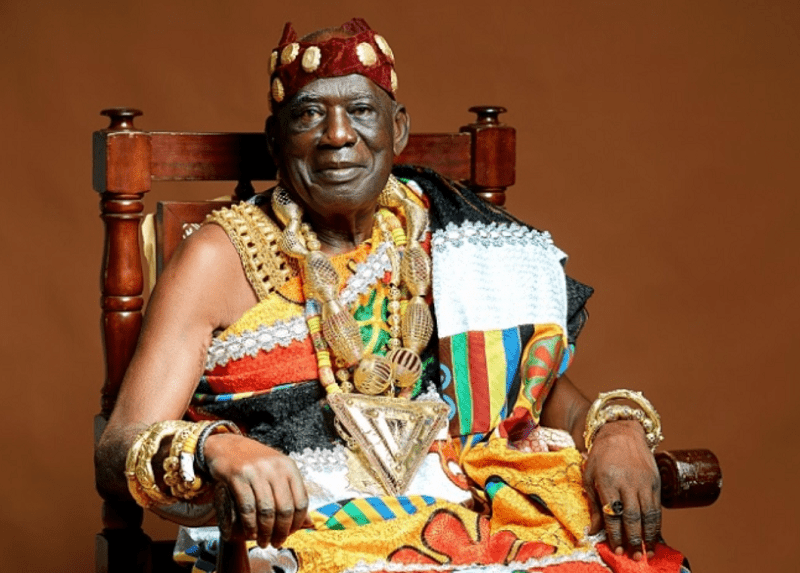
The ancient city of Cape Coast, one of Ghana’s historical cities, witnessed a showcase of the rich cultural heritage of the Oguaa people with an exciting, colourful, and traditional event to mark the celebration of the 61st annual Fetu Afahye.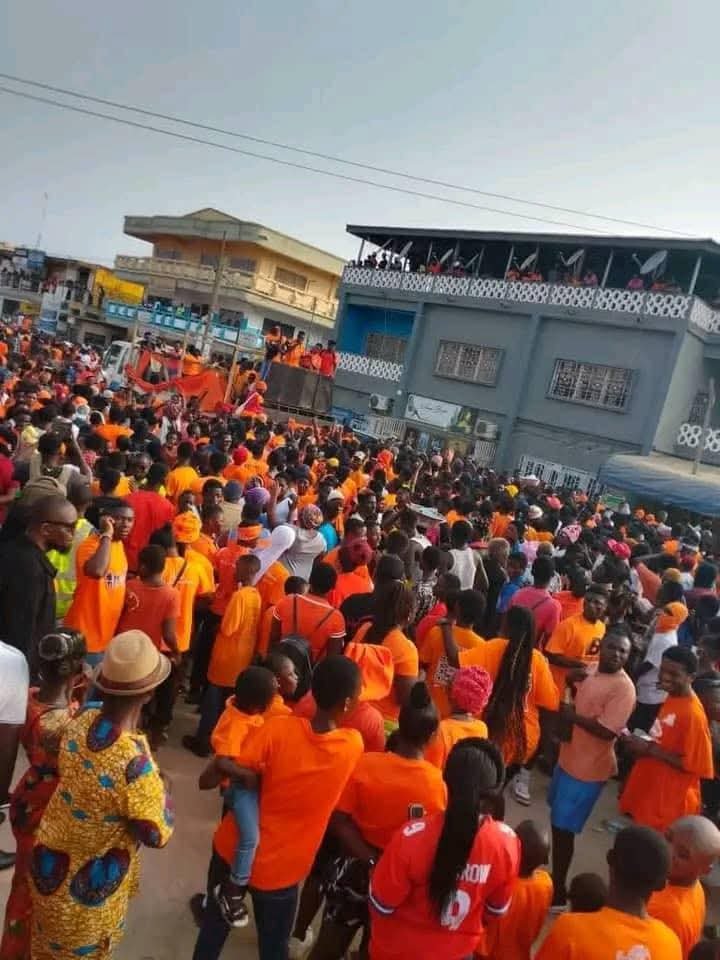
Themed “Innovate to elevate: Harnessing the creative economy for sustainable growth”, the festival featured a vibrant lineup of events, interspersed with several cultural performances showcasing the traditions which depict the traditional, historical and ancestral heritage of the land.
It witnessed a colourful procession of chiefs and various Asafo companies from the Mfantsipim School junction through the principal streets of the town to the Jubilee Park, accompanied by drumming and traditional dances.
The chiefs and members of the asafo companies were adorned in regal attire symbolising the pride and unity of the community.
Fetu Afahye demonstrates Oguaa’s resilience, unity, and cultural pride as the town welcomed indigenes both within and outside, as well as people from far and near, desirous of participating in the festival.
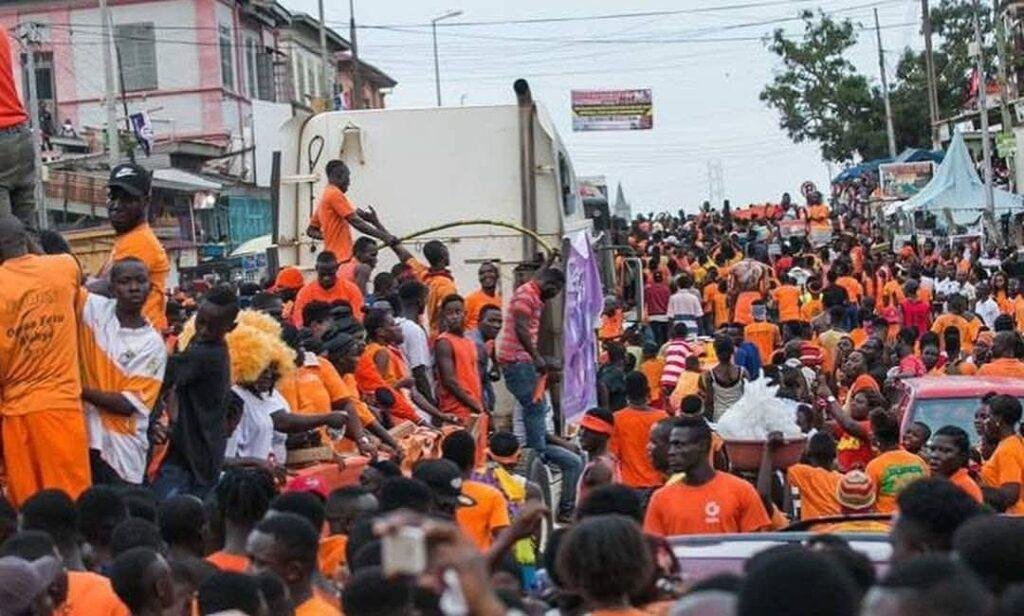
Various public spaces, including eateries and pubs, attracted patrons, and streets within the town witnessed bustling events with music blaring from the loudspeakers that had been placed by the roadside.
Bakatue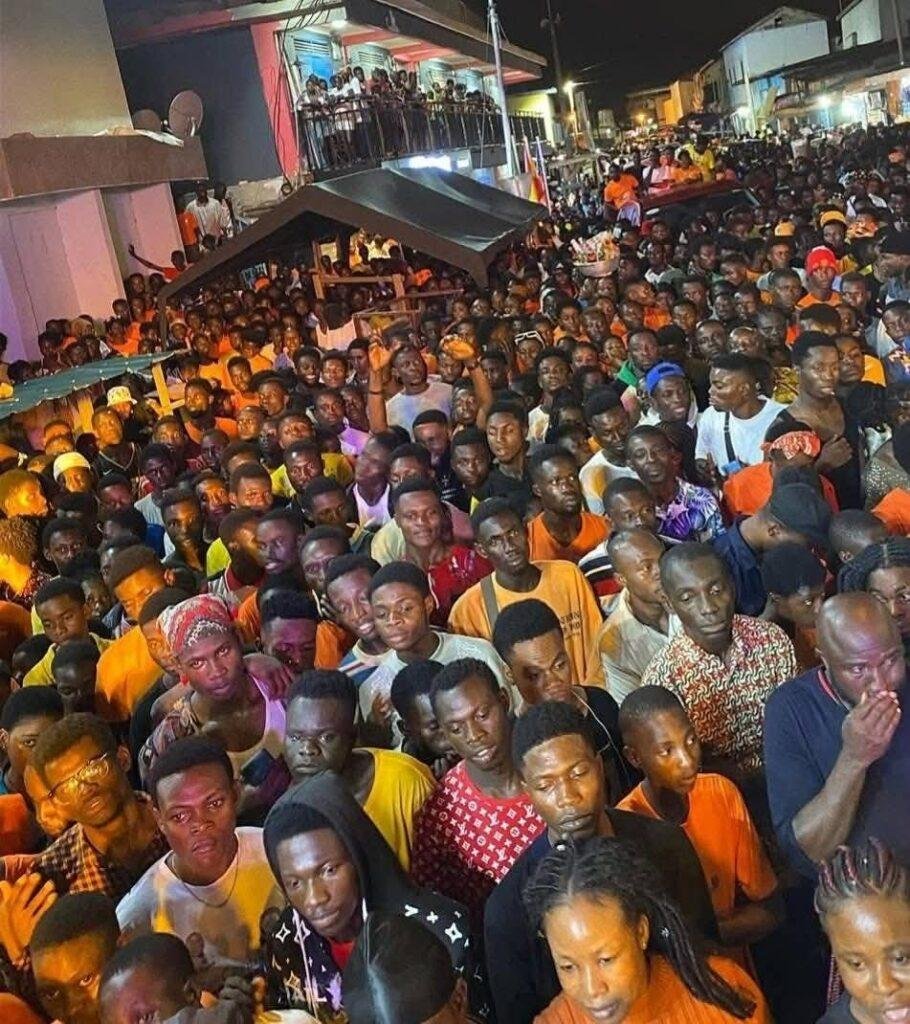
Prior to the durbar was the Bakatue regatta, a canoe race on the Fosu Lagoon, organised by ATL, a campus-based radio station located within the University of Cape Coast (UCC) in collaboration with the Oguaa Traditional Council.
The event saw a thrilling spectacle as the three Asafo companies, Nkum No. 4, Bentsir No. 1, and Anaafo No. 2, battled aggressively on the Fosu Lagoon. Nkum No. 4 earned nine points to clinch the trophy, medals, and a cash prize. They were followed by Anaafo No. 2 with five points, while Bentsir No. 1 finished third with four points.
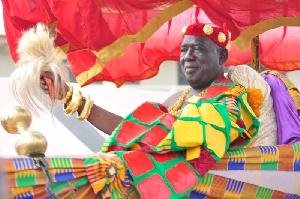
Orange Friday
Friday witnessed what has come to be known as the biggest street carnival in Ghana, known as ‘Orange Friday.’
It drew hundreds of people across the country. Clad in orange attires, the patrons gathered and moved through the streets of the town, creating a gridlock.
The Paramount Chief of the Oguaa Traditional Area, Osaberimba Kwesi Atta II, at the durbar of chiefs to climax the festival acknowledged the unifying factor in relation to culture among Africans and stated the need for Africans to take their destinies into their own hands.
He explained that festivals such as Fetu Afahye offer an opportunity for Africans to remind themselves of the future by working hard and embrace the future in order not to be taken by events.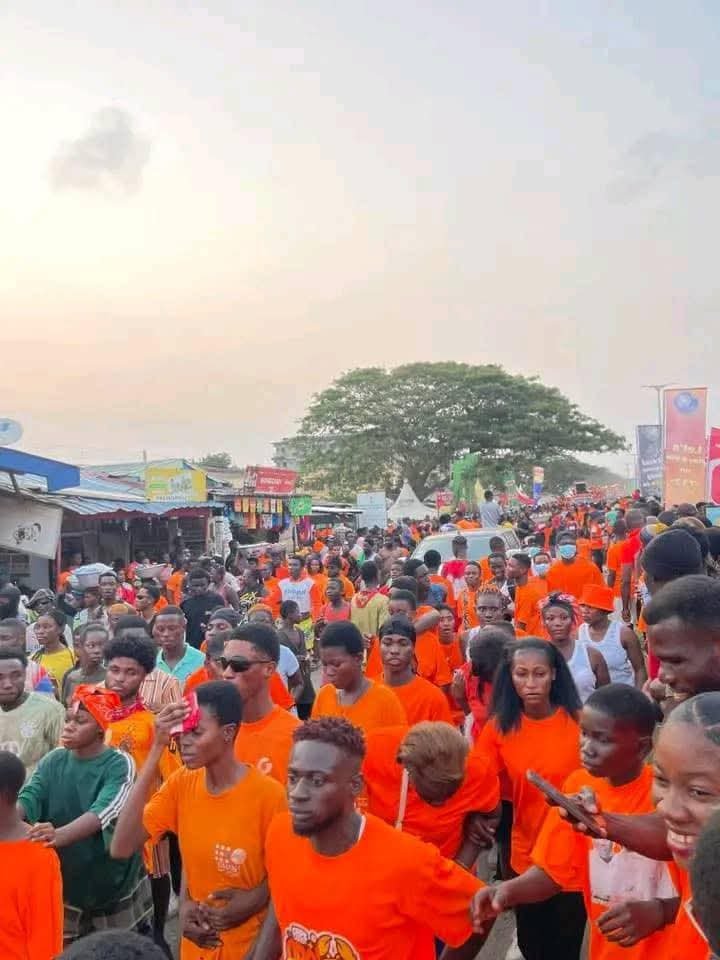
The Vice President, Prof. Naana Jane Opoku-Agyemang, in a speech read on her behalf, noted that the festival was far more than a ritual or an annual duty, saying, “It is an affirmation of an identity, a homecoming and a powerful testimony to the wisdom and fortitude of our forebears”.
In his remarks, the Special Guest of Honour, the Olu of Warri State in Nigeria, Ogiame Atuwatse III, indicated that, the only thing holding Africans back was Africans themselves, which he said, was in the area of an African identity, and acting on that identity.
From David O. Yarboi-Tetteh, Cape Coast
Join our WhatsApp Channel now!
https://whatsapp.com/channel/0029VbBElzjInlqHhl1aTU27
News
Chief Imam issues disclaimer on unauthorised petitions
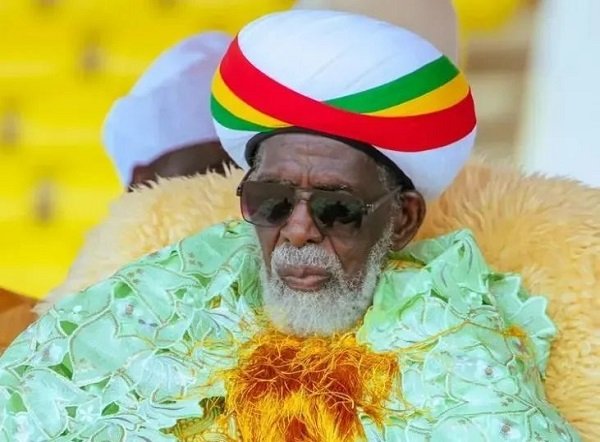
The Office of the National Chief Imam has warned Muslim organizations and individuals against issuing statements and petitions to the Government in his name without permission.
In a statement, the Chief Imam said he had observed that some groups had been circulating petitions, including a recent one on Hajj, using his name without authorization.
He stressed that such actions were unlawful and cautioned those involved to stop or face the law.
The Chief Imam reminded the public that on October 4, 2022, he, together with the National Imams of all Muslim sects, signed a deed and presented it to the Government at the Jubilee House.
The agreement recognised the National Muslim Conference of Ghana as the official body representing Muslims in their dealings with state institutions.
He urged that any petitions meant to be sent to the Government in his name should go through the National Muslim Conference of Ghana with the approval of the Advisory Board of his office.
By: Jacob Aggrey








